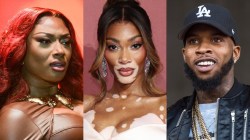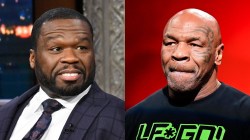“No love from my daddy cause the coward wasn’t there /
He passed away and I didn’t cry / Cause my anger
Wouldn’t let me feel for a stranger..”
1995 wasn’t just the year Tupac released his ode to his mother with “Dear Mama,” it was also the year my father Ural Garrett Sr. succumbed to his battle with cancer. I can still recall that brief conversation with the woman who birth me over cereal. The way mother told me, one could tell there was a bit of fear in her voice. Once the announcement was made, my reaction nonchalantly involved asking for another bowl? Hell, I didn’t even attend his funeral. To this day, a part of me never understood how a man can have children and just disregard them. Matter of fact, my mom was like baby mother number six. Dying with zero assets doesn’t help either. Growing up in a single-parent household during the peak of Los Angeles gang violence and lacking a father figure could have turned me into a monster. Thankfully, I had a pretty awesome older brother/sister combo to steer my ship of destiny to the man you’re reading now. Having siblings in their late teens/ early twenties meant that my exposure to Hip Hop happened fairly early; more specifically everything from the West Coast. Let’s be honest here, most commercial rap during that time wasn’t exactly friendly toward women. Sure, Tupac took a more nuanced approach to dealing with the opposite sex but I won’t lie about how much I listened to The Chronic or Suga Free’s Street Gospel. What can I say, “Bitches Ain’t Shit” was dope to me. Like anyone growing of age, my taste evolved with my world view. Making my way to college, I learned about the systemic rift white supremacy caused between black men and women. That meant understanding mass incarceration of men of color and the dreaded “welfare queens.” I’ll let Chicago’s own Nikki Lynette describe the situation further:
Mistrust between men and women of color have been one theme that’s been tackled throughout Hip Hop for years. Of course, hypermasculinity has lead to a generation proclaiming “These Hoes Ain’t Loyal,” “Fuck Bitches, Get Money,” and “Money Over Bitches.” Classics such as LL Cool J’s “I Need Love” along with Mary J Blige and Method Man’s “I’ll Be There for You / You’re All I Need” or Common’s “The Light” seemed like mere seasonal changes. Females emcees that rely on rhymes relating to scheming men don’t help either. Just last year, Azealia Banks said on Instagram that black men take women like her for granted; hence her affinity for old white men. I get it, in a society that’s historically treated black men as second class citizens, Hip Hop served as a confidence booster. What better way to feel like a man than the number of hoes one has, the amount of money or wealth one can attain and disregarding authorities? Then again, at what cost? When single unwed mothers are swinging around 72 percent, maybe some soul searching should come into play.

AD LOADING...
However, there may be hope. The recent drama between Joe Budden, Meek Mill and Nicki Minaj proved exactly that. Millions watched Budden disrespect Tahiry during their time on VH1’s Love & Hip Hop. Seeing him clown Meek for showing affection to his lady was juvenile at best. The way the Internet reacted didn’t work in Budden’s favor. At least the music may be reflective of a better relationship between the sexes. Maybe everything from the deaths of Trayvon Martin to the Baltimore riots and recent events in Charleston have brought a feeling of unity. Despite possibly helping contribute to drug culture, there’s something pretty refreshing about “Trap Queen.” Playing the song to my 50-year-old brother-in-law a few weeks back, he had no idea the song was about cooking crack. Makes sense why Zoo Wap’s hit has become so universally popular. Dealing with issues such as black beauty, there isn’t a track as impactful on the subject — other than Kendrick Lamar’s “Complexion” featuring Rapsody. Taking on colorism is another way for men and women of color to heal years of being fractured by the European standard of beauty. As the U.S. celebrates marriage equality and interracial marriages becomes less of a taboo then it was over 50 years ago, maybe Hip Hop is helping acknowledge old racial wounds.
Ural Garrett is a Los Angeles-based journalist and HipHopDX’s Senior Features Writer. When not covering music, video games, films and the community at large, he’s in the kitchen baking like Anita. Follow him on Twitter @Uralg.



